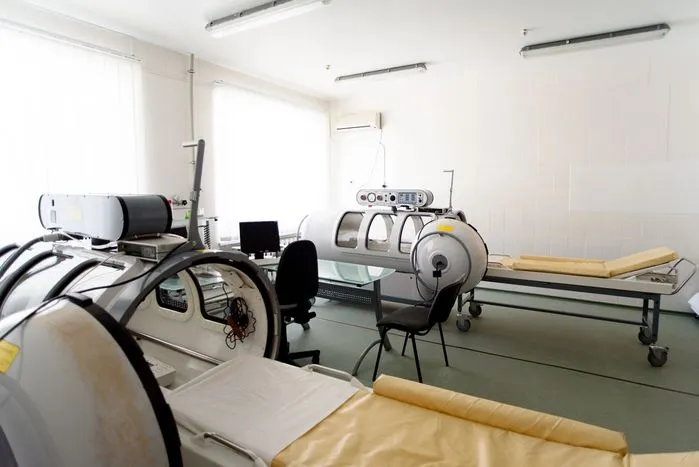Electronic Medical Records, or EMRs, have recently been incorporated into the health care system. This has allowed ease of accessibility to patient information. The readily available data to medical practitioners through the EMR systems provide vital information on a patient's health status and prognosis.
Because of this, there is a growth in interest in artificial intelligence or AI-based software for predicting and improving patient outcomes.
With the ongoing development of technology, wound care specialists are continuously exploring the potential role of AI in predicting patient outcome and its improvement.
In this article, we will discuss the role of AI in wound care and it's potential capacity to predict chronic wound healing. Let's dive in.
What Is Artificial Intelligence?
Previously, AI only existed within the world of science fiction. But with the advancements in computer science and "machine learning" it has made the concept or idea of intelligent machines a reality.
Machine learning is a subcategory of AI, and it is modeled after human neurons and synapses. But in layman's terms, machine learning is a "self-learning" algorithm program where data sets are fed into the software, which analyzes it to obtain vital information that it might not get manually.
The availability of massive amounts of clinical data and powerful programming has increased healthcare professionals' interest in AI's potential role in the healthcare industry.
AI-based technology can also help clinicians with crucial diagnostic information, which can help them further develop individualized treatment plans. This is made possible because AI-based software can perform pattern recognition and analysis. This allows for recognizing critical clinical data that could otherwise not have been readily apparent. AI technologies also have the potential to lower healthcare costs by improving efficiency.
The use of deep learning and AI in the analysis of medical images is already gaining rapid popularity, with the expectation that AI-based software will become even more popular in other fields of medicine as well.
Artificial Intelligence And Wound Care
With the steady rise of an aging population comes the overall increase in chronic wounds. While certain patients might be treated in an inpatient setting, most wound care is delivered in an outpatient environment.
AI-based software and telemedicine can play a critical role in providing continuous care to the community through prediction and assessment. Introducing this technology will also allow a wider number of patients to connect with trained wound care experts.
With smartphones equipped with camera apps, AI and telemedicine allows patients and their caregivers to take photos of their chronic wounds, which are then used in wound assessment and management. These pictures can also be shared immediately through an app allowing clinicians to evaluate the images in real-time. This would enable wound care specialists to monitor the status of their patient's chronic wounds even when they cannot visit the clinic.
The ease of accessibility to telemedicine is relevant as some patients with chronic wounds might be bedbound and incapable of physically visiting their healthcare provider. Without an app, these patients would struggle to access vital healthcare systems.
Given these factors, AI and telemedicine have great potential to revolutionize how wound care is delivered to patients. It can help save costs, improve efficiency and allow for greater health equity.
Wound Healing Prediction Using Artificial Intelligence
Even though wound imaging and documentation can provide clinicians with valuable clues regarding wound healing, the assessment of wounds can be subjective. This is because wound assessment can be influenced by several factors, including image quality, the experience of the clinician, and the photo angle. Therefore, AI-based software that can accurately predict chronic wound healing and provide objective information on wound assessment would be a valuable tool for clinicians. It will help to eliminate subjective biases and provide a more accurate evaluation of wound healing.
There has been a growing interest in using AI to model wound healing. A study published in “Advances In Wound Care” reports one such AI model used to predict chronic wound healing within 12 weeks. According to the study, the AI model developed could predict wound healing with acceptable levels of accuracy. The model also revealed that wound characteristics and not patient demographics were more accurate predictors of recovery. Another study also reported promising results of artificial intelligence for predicting pressure ulcers.
In addition to showing promising results in wound healing prediction, artificial intelligence might also become a viable tool for wound assessment. According to a study published in 2022, image-based artificial intelligence software shows excellent potential for providing accurate data on wound assessment. Compared to manual assessments of wound dimensions and tissue changes that are subject to observer variability. Computer-based image analysis can significantly improve wound assessment by removing observer bias. This, in turn, will improve wound care outcomes and patient satisfaction.
Bottom Line
As software technology advances, the integration of artificial intelligence in healthcare is inevitable. The future of wound care is expected to involve routine utilization of AI and AI-based apps for wound assessment. Telemedicine has already seen a massive surge in popularity during the COVID-19 pandemic. And it is predicted that the role of AI-based apps and telemedicine will only continue to grow. Artificial intelligence-based wound assessment can help clinicians save time and provide better patient care. Given the shortage of trained wound care specialists, AI-based apps can also help widen patients' access to specialized wound care by connecting them with skilled wound care experts.



.webp)

.avif)